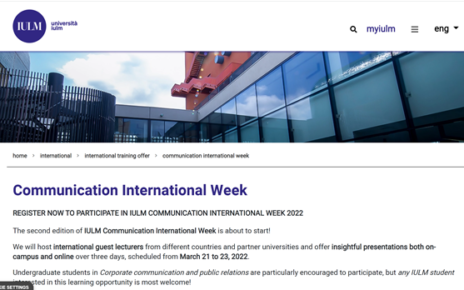A couple of weeks ago I invited readers to reflect on a case study involving a person leading employer branding at her organization and the dilemma she faced.
Every organization has a reason to exist. Organizations who have discovered this reason and articulated it to current and prospective employees can hope to find success.
Often, the task of identifying the company’s employee value proposition (EVP) rests with the ‘employer’ branding team or the ‘human resources’ department. It may logically fit within their purview although only a team passionate about deriving the full value of your organization’s EVP can help bring it to life.
Let’s step back a bit. What is an EVP and why does it matter? In a world where organizations compete for talent, it helps to have a clear approach to communicating internally and externally. Your organization’s EVP is a promise to current and prospective employees on expectations you have about the ‘contract’. By articulating whom you are as an organization, the unique value you offer and expect, it is easier to differentiate, attract and retain talent. Not just that – unless your own employees are convinced and appreciate your value proposition, they can’t be your strongest brand advocates. The most effective organizations invest in a differentiated EVP. Interestingly, only 14% of organizations are explaining the terms of the EVP to their employees.
Here are a few ways to arrive at your organization’s EVP.
· Start from within: A value proposition that explains the essence of your organization’s DNA and ties back to the roots of who you stand for, has a greater chance of acceptance than one which projects itself. Arriving at your organization’s EVP means investing in solid research, listening to your staff (current and former), seeking views from your leaders and understanding the environment in which your business operates. When you start from within, you also come across as authentic.
· Align with your company’s brand intention: Your organization’s value proposition is bound to be unique since your business operations and strategy are fundamentally different from others in the marketplace. That said, when you compete with others to hire the brightest talent available, it is critical to stand apart. Therefore, any EVP needs to consider your brand, heritage, values, vision, goals, success stories and customer insights. Even if you have just started out as an organization, there is still a brand story to share.
· Take a holistic approach: If you are an organization that is well established, then it is possible that you already have done some bits of research to allow framing of your EVP. For example, most organizations seek candidate experience feedback or conduct exit interviews to gauge perceptions. Likewise, a quick glance at Glassdoor can give you insights about your company’s pros and cons. Organizations often run internal pulse checks through employee engagement surveys. Finally, yet importantly, you can look up external benchmark reports and competitor statements to learn more about their messaging and appreciate the position you can take.
· Focus on moving forward: Most often, organizations get comfortable in doing what they have traditionally focused on and communicated. Policies and practices that served in the past may not work in the future or be relevant in the current context. This can be debilitating. Review your organization’s strategic drivers and initiatives and chart your EVP basis that.
· Validate your recommendations: It is easy to believe that you got your EVP the first time around. Rather than rush into implementing the recommendations, you may want to test your approaches with your staff and basis industry standards or internal benchmarks. This step can reassure you that the implementation plan is sound or help you re-calibrate actions you may have decided to take.
Remember that your EVP isn’t what you want to project as an organization. If who you are and what you project aren’t the same, your EVP will fail. It is a small world and word spreads easily. Authenticity plays a critical role in the success of any EVP.
What are your views? How does your organization go about arriving at their EVP? Keen to hear your thoughts.
For more such posts visit my blog at www.aniisu.com



